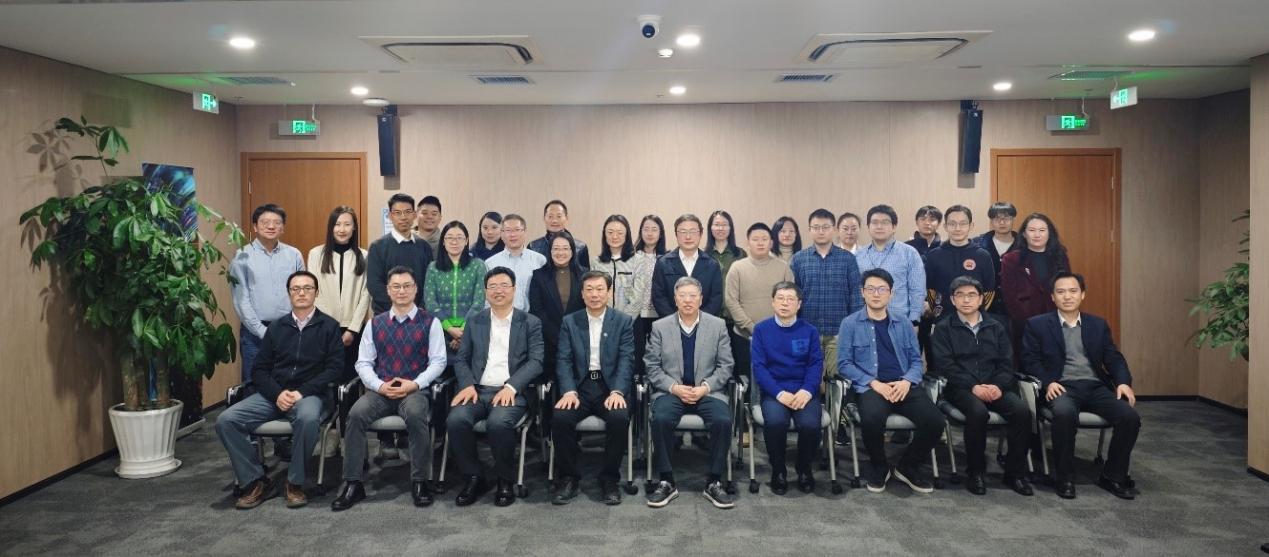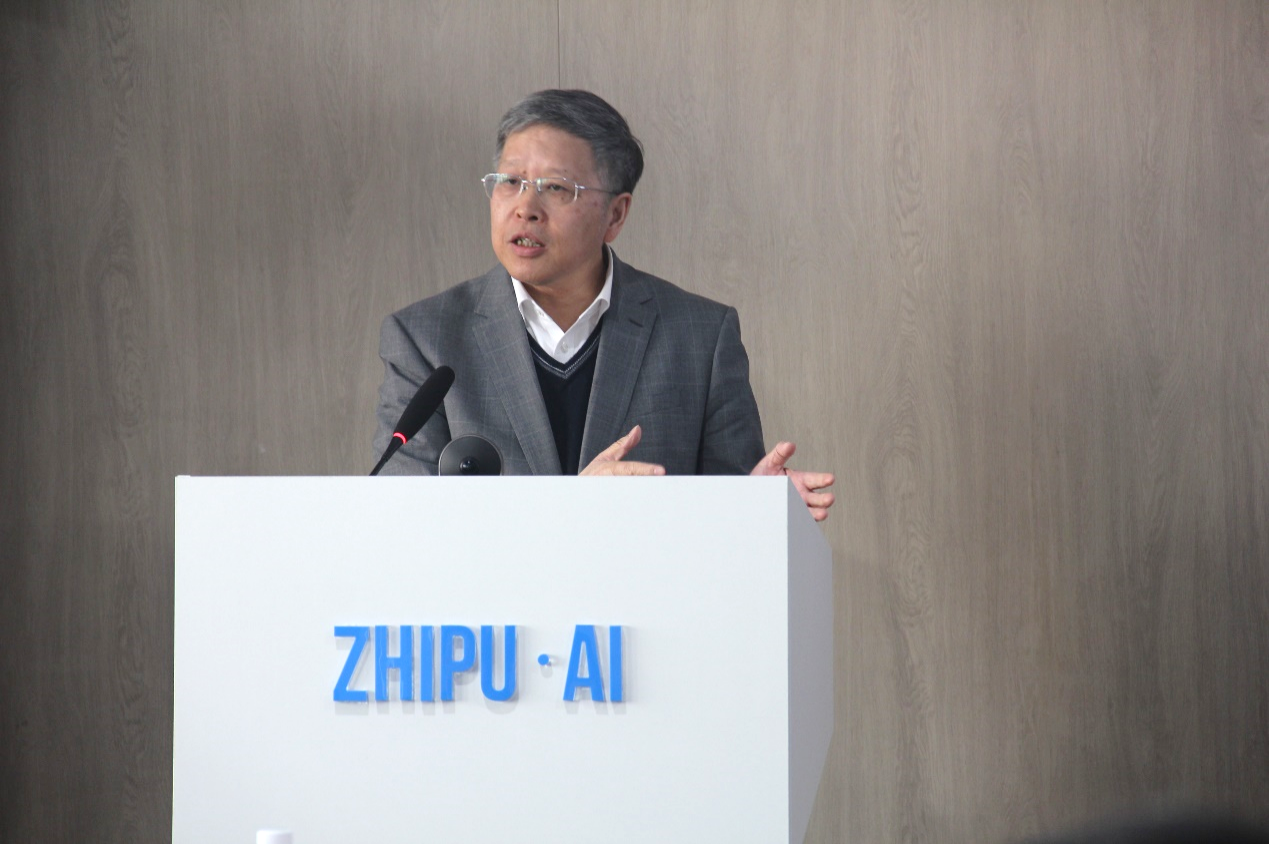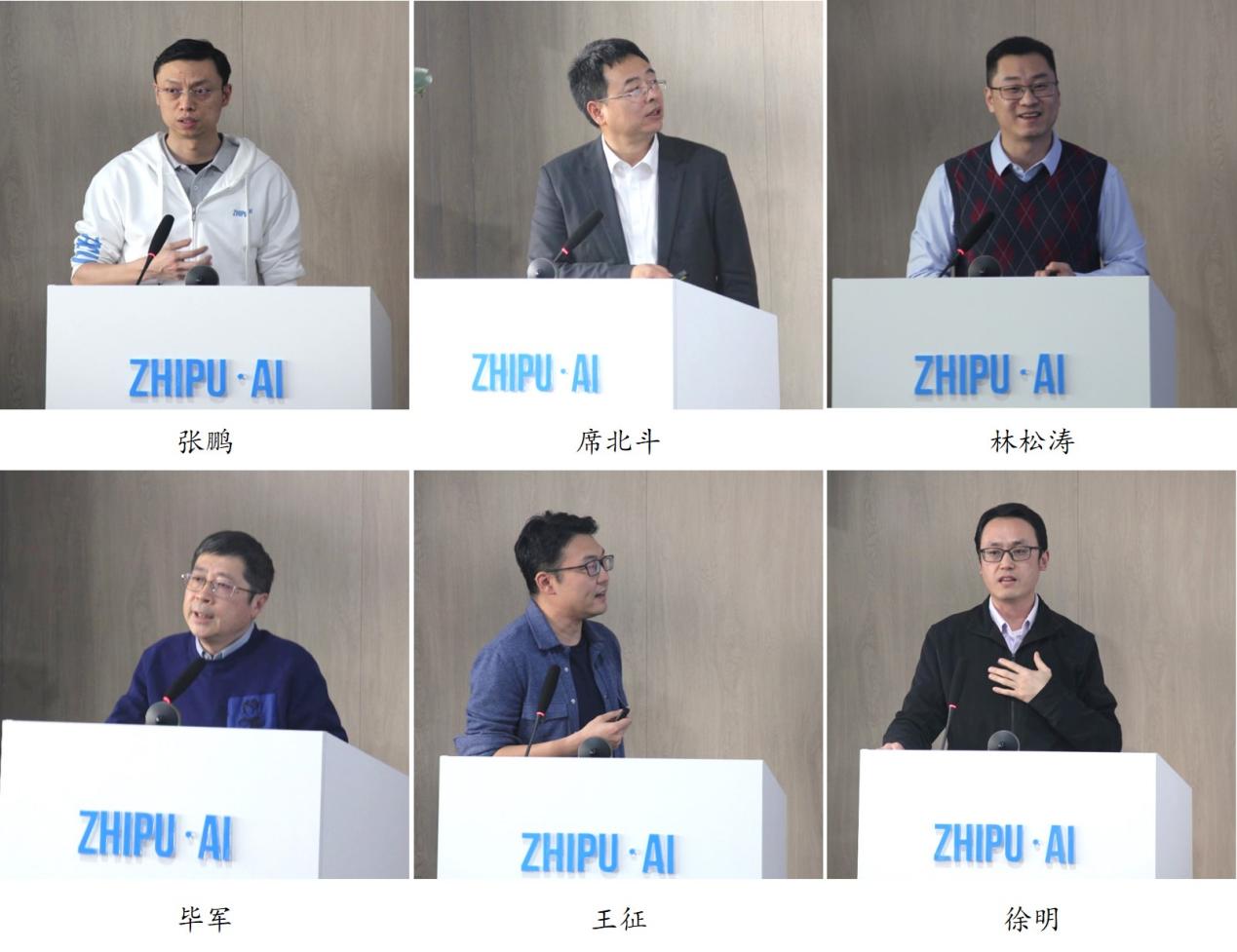On January 29, the "AI for Ecology and Environment" symposium was successfully held. The symposium was co-hosted by the School of Environment, Tsinghua University and the Chinese Academy of Environmental Planning (CAEP), co-organized by Beijing Zhipu Huazhang Technology Co. Ltd. (also referred as "ZhiPu·AI"), and undertaken by the Center for Artificial Intelligence in Ecology and Environment (CAIEE) at the School of Environment. The symposium attracted over 30 experts and scholars from various fields. They discussed the innovative applications of AI technology in ecology and environmental protection and sustainable development.

Group Photo of Participants
The symposium was presided over by Liu Shuming, Dean of the School of Environment, Tsinghua University. Academician Wang Jinnan, who serves as a member of the Standing Committee of the National Committee of CPPCC, Deputy Director of Committee on Population, Resources and Environment, Honorary President of CAEP, Chairman of the Chinese Society for Environmental Sciences (CSES), and Academician of the Chinese Academy of Engineering (CAE), delivered a keynote speech titled "Deepening the Application of AI Technology to Build a Digital Governance System for a Beautiful China".

Academician Wang Jinnan gives a keynote speech
At this symposium, special reports on relevant topics were delivered by experts, including: Zhang Peng, CEO of ZhiPu·AI; Xi Beidou, Deputy Director of the Chinese Research Academy of Environmental Sciences; Lin Songtao, Deputy General Manager of TRS Information Technology Co., Ltd.; Bi Jun, Professor of the School of Environment at Nanjing University; Wang Zheng, Head of AI for Science at AliCloud’s Apsaras Laboratory; and Xu Ming, Associate Dean and Chair Professor of Carbon Neutrality of the School of Environment, Tsinghua University, and Director of the CAIEE.

Special reports session
The discussion session of the symposium was hosted by Xu Ming. Attendees focused on several key topics, including "the potential and challenges during the application of generative AI in scenarios such as environmental planning, environmental management, environmental health, and smart water plants", "how to promote the deep integration and application of AI into the field of ecology environment", and "the role of disciplinary construction, talent cultivation, and industry-academia-research cooperation in advancing the development of AI for Ecology and Environment ". Liu Yi, Vice Provost for Academic Affairs, Director of the Undergraduate Academic Affairs Office, and Professor at the School of Environment, Tsinghua University, and Wan Jun, Deputy Director of CAEP, also participated in the discussion.





